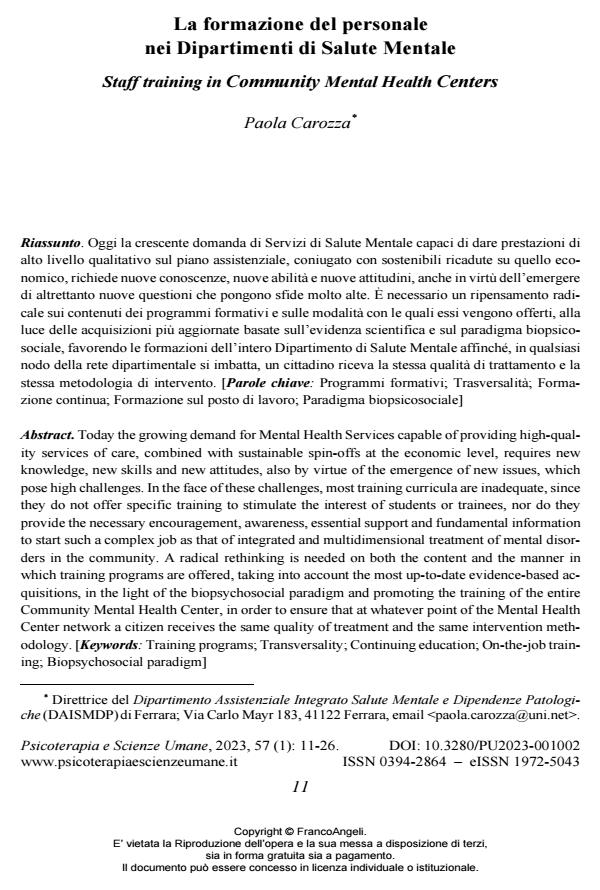Staff training in Community Mental Health Centers
Journal title PSICOTERAPIA E SCIENZE UMANE
Author/s Paola Carozza
Publishing Year 2023 Issue 2023/1
Language Italian Pages 16 P. 11-26 File size 167 KB
DOI 10.3280/PU2023-001002
DOI is like a bar code for intellectual property: to have more infomation
click here
Below, you can see the article first page
If you want to buy this article in PDF format, you can do it, following the instructions to buy download credits

FrancoAngeli is member of Publishers International Linking Association, Inc (PILA), a not-for-profit association which run the CrossRef service enabling links to and from online scholarly content.
Today the growing demand for Mental Health Services capable of providing high-quality services of care, combined with sustainable spin-offs at the economic level, requires new knowledge, new skills and new attitudes, also by virtue of the emergence of new issues, which pose high chal-lenges. In the face of these challenges, most training curricula are inadequate, since they do not offer specific training to stimulate the interest of students or trainees, nor do they provide the necessary encouragement, awareness, essential support and fundamental information to start such a complex job as that of integrated and multidimensional treatment of mental disorders in the community. A radical rethinking is needed on both the content and the manner in which training pro-grams are offered, taking into account the most up-to-date evidence-based acquisitions, in the light of the biopsychosocial paradigm and promoting the training of the entire Community Mental Health Center, in order to ensure that at whatever point of the Mental Health Center network a citizen receives the same quality of treatment and the same intervention methodology.
Keywords: Training programs; Transversality; Continuing education; On-the-job training; Biopsychosocial paradigm
Paola Carozza, La formazione del personale nei Dipartimenti di Salute Mentale in "PSICOTERAPIA E SCIENZE UMANE" 1/2023, pp 11-26, DOI: 10.3280/PU2023-001002